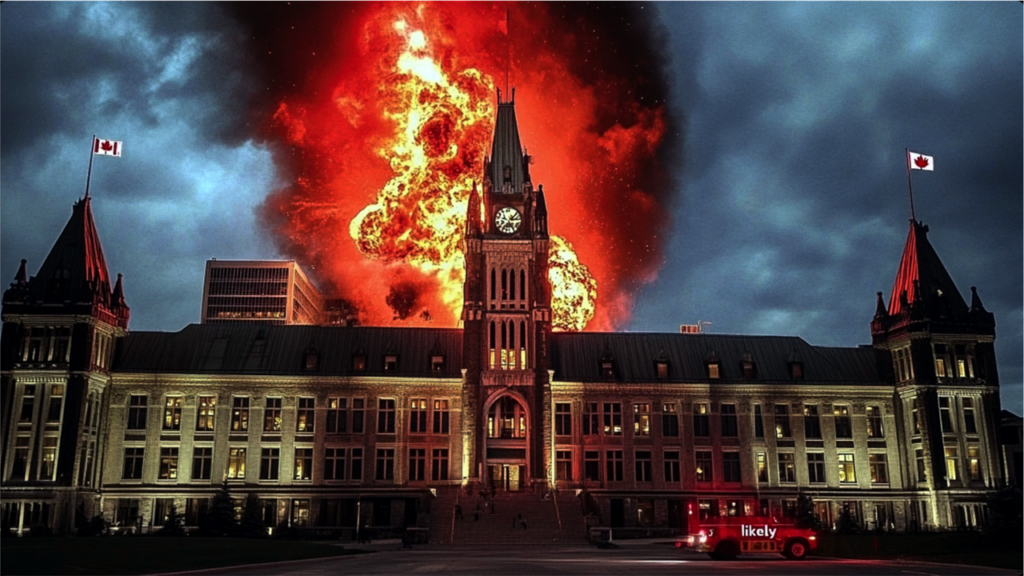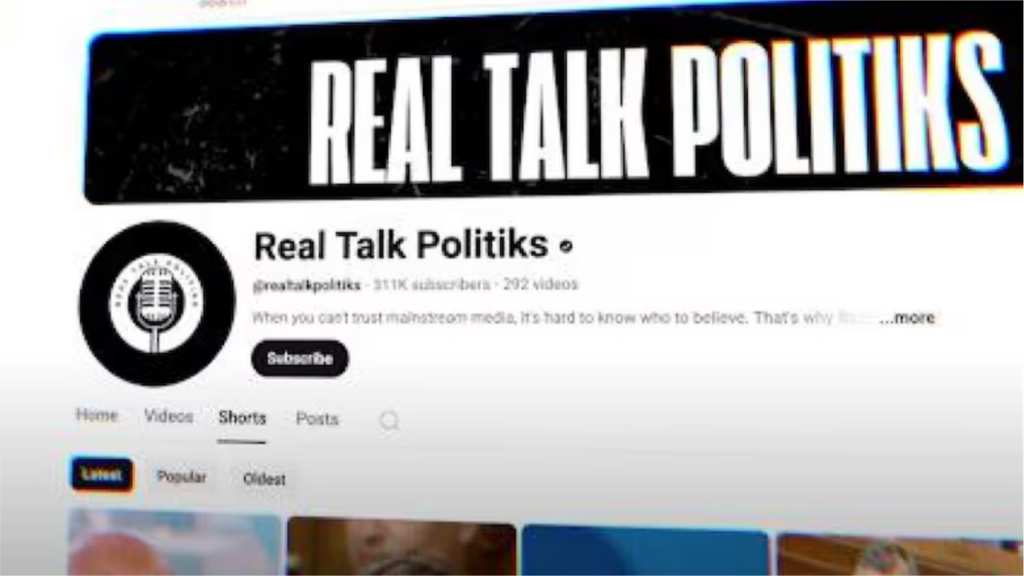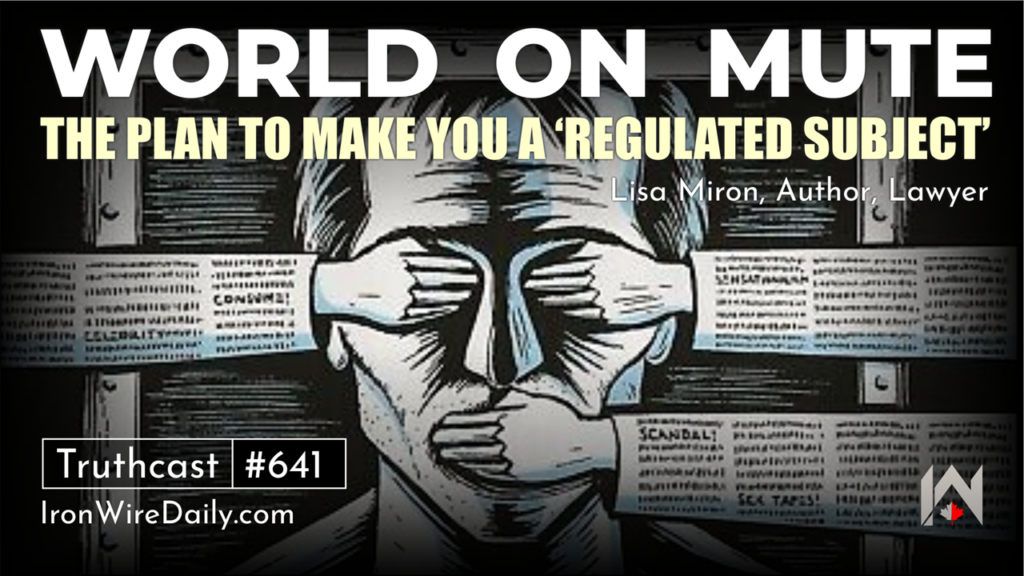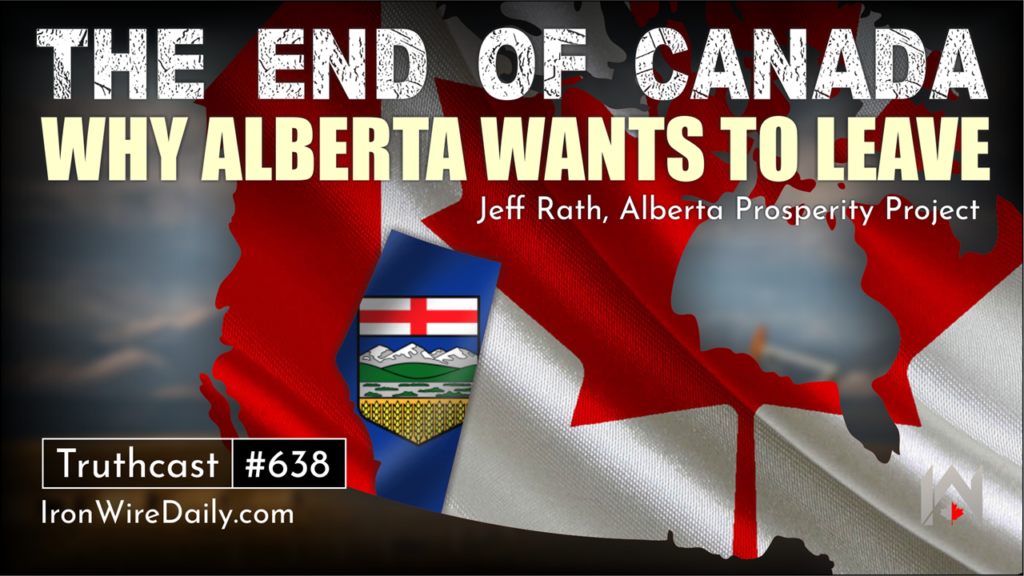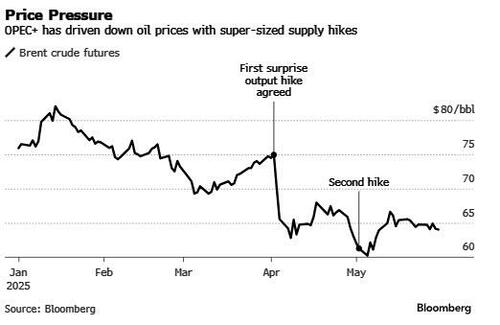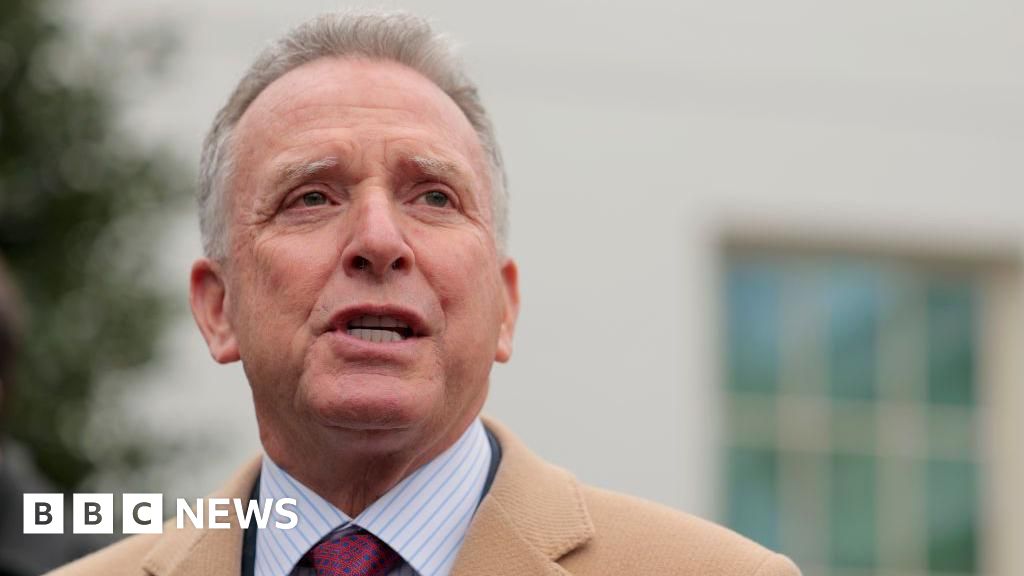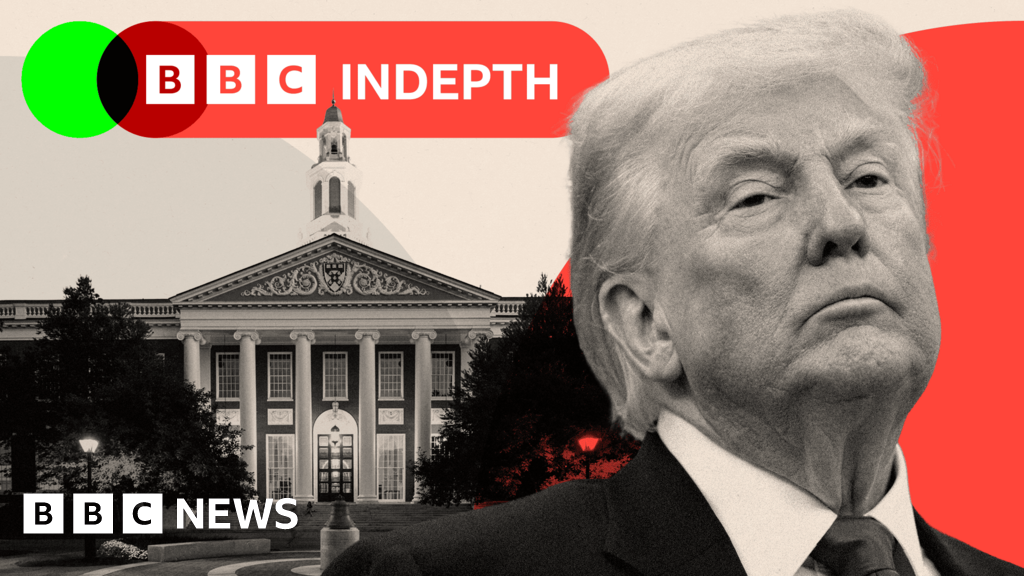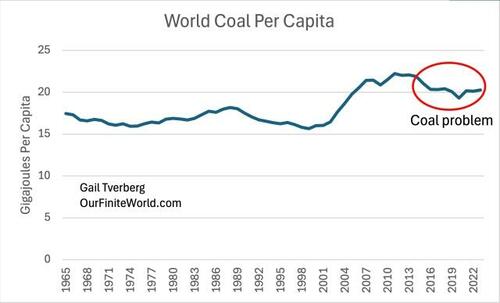Carney Betrays His Promise to Push Back on Trump Tariffs
Source: The Iron Wire
(0:00 - 2:36) Good evening, I'm Will Dove, and these are the top stories for Friday, May 23rd. In tonight's news, Mark Carney quietly caves on retaliatory tariffs, hoping that voters won't notice. More information on the murder of two Israeli embassy workers in Washington, and leaked documents reveal the massive blackout in Spain last month was caused by stress testing of the renewable energy grid. We also report on what percentage of Canadian energy comes from green sources. Prime Minister Mark Carney has quietly introduced a six-month tariff exemption for a wide range of U.S. goods, effectively nullifying retaliatory tariffs he championed during his campaign. Carney, who ran on a platform of standing firm against U.S. President Donald Trump's aggressive trade policies, appears to be backtracking, leaving many to question his resolve and the sincerity of his promises to protect Canadian interests. During the April election, Carney positioned himself as the leader best equipped to counter Trump's tariffs, which include a 25% levy on most Canadian exports and a 10% tax on energy resources implemented in February. His campaign rhetoric was unequivocal. Canada would respond with dollar-for-dollar retaliation to safeguard its economy. In March, Canada imposed 25% tariffs on $59.8 billion worth of U.S. goods, targeting items like orange juice, alcohol, coffee, cosmetics, clothing, steel, aluminum, and non-Cosme-compliant vehicles. These measures were hailed as a bold stand against U.S. economic pressure, resonating with voters worried about the impact of Trump's tariffs on the Canadian economy and largely responsible for his victory over Pierre Poliev's Conservatives. Yet, just weeks after a high-profile meeting with Trump at the White House on May 6, 2025, Carney's government announced exemptions that have reduced the effective tariff rate on many U.S. imports to nearly zero, according to Oxford Economics. Goods used in manufacturing, processing, food and beverage packaging, health care, national security, and public safety are now exempt, as are certain vehicles imported by automakers like General Motors. This policy shift, detailed in the United States' surtax remission order, has allowed U.S. products to flow into Canada with minimal cost increases, while Canadian exporters continue to face steep U.S. tariffs with no reciprocal relief. Conservative watchdogs note that this undermines Carney's campaign pledge to stand up to Trump. (2:37 - 8:31) The exemptions, which benefit U.S. producers while Canadian industries like agriculture and lumber struggle under U.S. tariffs, suggest a willingness to prioritize diplomatic appeasement over economic nationalism. For those already suspicious of Carney's globalist leanings, stemming from his disastrous tenure at the Bank of England and his ties to international finance and the WEF, the move reeks of capitulation. The timing following his Trump meeting fuels speculation that Carney may have caved under pressure, despite his public insistence on a strategic approach to trade. During his half-hour meeting with President Trump earlier this month, Carney spoke for just over two minutes, while Trump and Vice President Vance dominated the meeting. Economically, the exemptions soften the blow of U.S. tariffs on Canada, with Oxford Economics projecting 0.9% GDP growth in 2025, compared to a potential 2.5-point drop without them. However, this comes at the cost of credibility. Canadian consumers face higher prices for non-exempt U.S. goods like orange juice and clothing, while exporters see no relief from U.S. tariffs, which are projected to reduce Canada's GDP by an estimated 2.3% long-term. Meanwhile, the U.S. economy, though dented by 0.7 percentage points in 2025 growth due to its own tariffs, faces minimal retaliation from Canada's watered-down measures. In a reflection of Carney's move with the carbon tax, dropping the consumer carbon tax while promising to increase carbon taxes for corporations, the Prime Minister's backpedaling on tariffs places the burden on consumers while benefiting corporations. Carney's exemptions signal a retreat from his tough-on-Trump rhetoric, raising doubts about his commitment to Canadian sovereignty and exposing yet another lie from the Liberal leader, who had been caught in numerous falsehoods even before his election. The six-month exemption will end in October, no doubt with Carney hoping that Trump will have dropped or greatly reduced tariffs on Canada, as he has with some other U.S. trading partners, so that Carney won't actually have to grow a spine and defend Canadian interests as he promised. We now have more details on the murder of the two Israeli embassy workers murdered in Washington two days ago. Elias Rodriguez, a Chicago native, described as a far-left activist with ties to Antifa, communist groups, and pro-Palestine movements, ambushed a group exiting an event hosted by an Israel advocacy organization. Court documents reveal Rodriguez systematically targeted Sarah Lynn Milgrim and Yaron Lischinsky, following them as they attempted to flee and shooting them multiple times, including in the back as they crawled away. Eyewitnesses reported the suspect shouting, "free Palestine," and waving a red keffiyeh, the traditional Middle Eastern headdress, after being subdued by police. FBI agents confirmed Rodriguez spontaneously declared, "I did it for Palestine, I did it for Gaza," during the arrest. One wonders how Rodriguez believed that murdering two innocent young people in America was going to help Gazans. Investigations into Rodriguez's online activity revealed a radicalized individual aligned with Marxist ideologies, Black Lives Matter, and anti-Israel activism. His social media history includes endorsements of anti-white rhetoric and vocal support for Palestinian causes. Notably, Rodriguez traveled to Washington for a work conference the day before the attack, suggesting premeditation. FBI Washington field office special agent Steve Jensen stated he was not previously flagged by the bureau, but is now under intensive scrutiny for potential ties to terror networks. The killings are being treated as a terroristic act, with interim U.S. attorney Jeanine Pirro confirming the case qualifies for the death penalty under federal law. FBI analysts are cross-referencing Rodriguez's digital footprint, including contacts and past activities, to determine broader conspiracies. The murders occurred amid heightened tensions following Israeli Prime Minister Benjamin Netanyahu's launch of Operation Gideon's Chariots in Gaza, aimed at dismantling Hamas. Jewish community leaders swiftly condemned the violence as anti-Semitic terrorism. The American Jewish Committee, which hosted the event, expressed devastation and solidarity with the victims' families. Security measures in the area have been intensified, with Washington, D.C. Police Chief Pamela Smith pledging heightened patrols. The incident raises urgent questions about radicalization within far-left movements and the exploitation of geopolitical conflicts to justify homicidal violence. A controversial renewable energy experiment by Spanish scientists triggered the countrywide power outage last month, leaving millions without electricity for 14 hours and raising urgent questions about the risks of aggressive green energy policies. According to leaked documents from Spain's electrical grid operator, researchers deliberately pushed the nation's grid to operate on 70 percent renewable energy for 72 hours to test its stability, a decision that culminated in cascading system failures starting at 3.17 p.m. local time. The blackout affected all 17 regions, paralyzing hospitals, transportation networks, and emergency services. In Madrid, traffic lights failed, causing gridlock during rush hour, while Barcelona's metro system stranded over 200,000 commuters. Hospitals resorted to backup generators, but health officials confirmed that at least 12 facilities exhausted their fuel reserves within 12 hours, forcing surgeries to be postponed. (8:32 - 9:07) Independent electrical engineer Antonio Garcia, who analyzed the grid data, criticized the experiment as reckless. He noted that Spain's heavy reliance on intermittent wind and solar, which contributed 44 percent of total energy in 2024, left the system vulnerable when cloud cover reduced solar output by 30 percent and wind speeds dropped unexpectedly in Andalusia. Battery storage capacity was insufficient to bridge the gap, and the grid couldn't reactivate fossil fuel plants fast enough to avoid collapse, Garcia explained. (9:07 - 9:42) The Spanish government initially blamed technical faults, but reversed its stance today after opposition lawmakers leaked internal emails showing scientists warned of a 20 percent risk of systemic failure prior to the test. Energy Minister Teresa Ribera acknowledged the experiment but defended it as necessary for climate goals, stating, Transitioning to renewables requires understanding system limits, implying that the collapse of the grid may have been intentional. Critics, however, argue the crisis exposes deeper flaws in Europe's green energy transition. (9:43 - 10:10) José María Figueres, spokesperson for Spain's center-right People's Party, called the blackout a foreseeable disaster and accused Prime Minister Pedro Sánchez's administration of prioritizing ideology over reliability. The incident has also drawn international attention, with German energy analyst Klaus Baumgartner warning that similar experiments are planned in France and Portugal. Meanwhile, residents face lingering disruptions. (10:11 - 10:33) Supermarkets in Valencia reported spoilage of perishable goods, and ATM networks remain offline in rural areas. The Spanish retail consortium estimates losses exceeding 280 million euros, 300 million Canadian dollars. As investigations begin, energy experts urge policymakers to balance climate targets with grid resilience. (10:34 - 12:09) You can't will a reliable system into existence with wind turbines alone, García said. This blackout should be a wake-up call, not just for Spain but for every nation racing to ditch conventional power. As of 2022, the most recent year for which we have reliable data, only 7% of Canada's power comes from green energy sources, specifically wind, solar, and biomass. However, this varies a great deal by province. Prince Edward Island relies almost entirely on green energy, mostly wind power, at 99.5%. Alberta follows at 28%, with Ontario, Nova Scotia, and New Brunswick all above 10%. Alberta experienced significant brownouts early last year due to reliance on wind power. Prior to Rachel Notley's economically disastrous NDP government in Alberta from 2015 to 2019, wind power generation accounted for less than 4% of power output. Notley increased it to 9% by the end of her tenure. Subsequent increases have been the result of lingering effects of her globalist-driven climate leadership plan, which unfortunately subsequent Conservative governments have continued to implement. PEI has not experienced outages, partly due to trade winds from the ocean being more reliable, but more so because, while the island generates almost all of its native power from wind, it also imports almost 70% of its power from New Brunswick via undersea cables. I'm Will Dove and those are the top stories for today, Friday, May 23rd.
